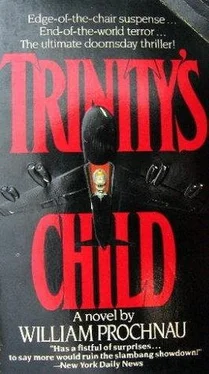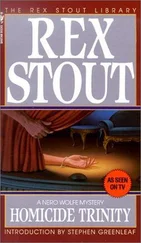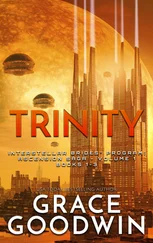“You soldier?” a frightened, squeaky voice asked.
Sedgwick forced his eyes open. The light had changed to the difficult shadows of a murky false dawn. Or perhaps the fires had moved closer. He had trouble focusing his eyes. He saw a small form pulling away through the winter-barren skeletons of the underbrush.
“Don’t go!” Sedgwick pleaded, stretching a bloodied hand outward.
“You American?” the voice asked suspiciously.
Sedgwick forced his eyes to focus and saw a young boy, perhaps eight years old, black and cherub-faced. The boy backed slowly away, holding a stick in defense.
“Don’t go,” Sedgwick said again. “Please.”
“Soldiers nuked us.”
“Get your daddy. Please.”
“M’ daddy’s dead.”
“Please, boy”—don’t call him boy, Sedgwick, you klutz—“please get someone. Your mama.” Sedgwick’s head was swimming, pain overwhelming desperation, then desperation overwhelming pain. “The President is down there.” The boy said nothing. Sedgwick despaired at the very absurdity of what he had said, and he began to slip away again, his mind fuzzily telling him not even a child could believe him. “Your mama,” he whimpered one more time, his head falling back into the snow.
“M’ mama doan like the President.”
Sedgwick lifted his head and reached out again—and the Queen said to Alice: Why, I’ve believed as many as six impossible things before breakfast—but the boy was gone. Sedgwick slipped back into semiconsciousness at the top of the gully up which he had pulled himself hand over hand.
Kazakhs snapped abruptly out of his nightmare, sitting bolt upright in Tyler’s seat. For a moment he was disoriented, the claustrophobic red lights closing in on him, his head swaying ever so slightly with the radar arm in front of him. The arm swept over a tongue of land, which they were departing, then over ice-free sea, and then, in the distance, over the ragged coastline of a fairly large island. He looked at his watch: 1225 Zulu. He shook his head, not remembering precisely when he had come downstairs. “Where the hell are we?” he bellowed. In the mirror reflection of the screen he could see the faint outline of the bodies stacked behind him, a pyre glowing in the redness. “Where the hell are we?” he shouted again. No answer. He felt very alone. He shuddered and stood, starting to unhook his radio connection. Then he sagged back in the seat, cursing himself. Anybody would go nuts down here. The radio wire hung loosely, never having been connected as he completed his grim chores. He attached it to Tyler’s outlet and, a trifle sheepishly, asked: “Where the hell are we?”
Moreau’s voice cut icily into his earphones. “You seem to like navigating, commander. You tell me.”
How long had he been down here? Ten minutes? Twenty? Thirty? He would have been furious with anyone else. “How’s our friend?” he asked defensively.
“Spooked,” Moreau spat back. “Do you mind coming back up here? We do have some problems.” He started to snap at her—this had not been the night’s most pleasant assignment—but Moreau continued. “See if you can snitch Halupalai’s alert bag on the way by.”
Kazaklis heard the radio click off abruptly. A pang of fear rippled through the pilot. He rose quickly, unhooked, and took one last look around. He did not want to come down here again. His eyes halted on Timmie. Reverently he pulled the photo loose from its simple plastic-tape frame. He walked to the alcove, tucked the photo into Tyler’s flight-jacket pocket, and zipped the pocket shut. Then he hurried up the ladder.
Halupalai sat inertly with his back to the stairwell. Kazaklis reached quickly for the bag, placing it behind his back, and squeezed the gunner’s shoulder. Halupalai woodenly turned a now ancient face toward him. The big Hawaiian’s hollow eyes slowly dropped toward the half-hidden alert bag, then moved knowingly back up at Kazaklis. He shook his head slightly, as if to tell Kazaklis it was foolish to worry about the cyanide pill, even more foolish to worry about the .45. The pilot clenched Halupalai’s shoulder once more and moved up front.
“Welcome back,” Moreau said acidly, forgetting her unspoken promise to Halupalai.
Kazaklis ignored her. “He doesn’t seem any better.”
“He’s blaming himself for everything from Vietnam to Radnor’s wife.”
“Jesus.”
“Shoulda known O’Toole was freezing to death. Shoulda tapped Tyler on the shoulder and asked for the damned gun. Shoulda shot down some bloody SAM’s fifteen years ago in Vietnam. Shoulda this, shoulda that, shoulda, shoulda, shoulda!” Moreau was beginning to sound hysterical.
“Hey, take it easy, pal.”
“Take it easy, bullshit! Everybody’s going bonkers! You disappear, Halupalai babbles, the world’s committing fucking suicide. Dammit…” Moreau’s voice trailed off.
Kazaklis softly placed a hand on her shoulder. She shook uncontrollably from rage and frustration.
“Get your damned hands off me!” she shrieked. “Go back downstairs and jack off—or whatever the hell you were doing. That’s all the world’s been doing for forty years.” Her voice sagged again. “You deserve each other.’
“Hey, Moreau,” he protested feebly.
“Then help me, Kazaklis. Play your silly percentage baseball. Give it your fancy barroom hustle. Do something. Anything. But don’t mope and don’t disappear for half an hour.” She paused and slumped in her seat. “Halupalai says there’s a side of you I don’t see,” she said quietly.
Kazaklis said nothing for a moment. He was tired. He had been trying to hold this plane together—this crew together—for more than six hours. He peered around the side of his helmet, peekaboo style. “My backside, maybe?” he asked impishly.
Moreau lunged at him in her fury, pounding her fists into his shoulder. “Stop it, damn you!”
Kazaklis took it for a second, then pushed her back gently but firmly. “Fuel load?” he asked professionally.
“Two hundred one thousand pounds,” she replied, equally professionally.
“Weapons load?”
“Just under twenty thousand pounds.”
“We have to jettison the weapons.”
“Yes.”
Kazaklis quickly ran the numbers through his head. By flying upstairs instead of down in the weeds, they would gain a thirty-five-percent fuel saving. If they didn’t push it, if they cruised at an optimum altitude of forty thousand feet or higher, they would bum twenty thousand pounds of fuel an hour.
Dumping the bombs—the three of them were the only pay load worth carrying now—and eliminating the drag from the missiles tucked under their wings would give them still more efficiency. With a few breaks they could stay up ten, eleven, twelve hours. This old brute still had at least six thousand miles in it.
“Where are we?” Kazakhs asked.
“Navigation isn’t our strong point.”
“We’ll make do. Halupalai wouldn’t last ten minutes down in that pit. It’s an Edgar Allen Poe horror story.”
“I know.”
“So where are we? You been drivin’, lady. I saw a peninsula and an island before I came up.”
“South of Anchorage. What was Anchorage. They sure didn’t want interceptors coming at them from the Alaskan Air Command.”
“Neither do we, pal. Only favor the cossacks did for us.”
“Yeah. Some favor. It’s the Kenai Peninsula, with Kodiak Island coming up.”
Kazakhs didn’t bother with a map. Like every B-52 crewman since the fifties, he had played this game with the same fervor that an English pubgoer played darts. He had the board memorized, all its fanciful targets etched in his head. Not once had he taken it seriously. But he could draw the circle in his mind, each degree of latitude another seventy miles south. From Kodiak, at fifty-eight degrees, the equator lay four thousand miles distant. Tahiti, Moreau’s once-prankish fantasy island, lay 1,250 miles beyond, almost due south of their present position. Tonga, Fiji, and a thousand islands of a thousand dead fantasies lay inside the arc.
Читать дальше












